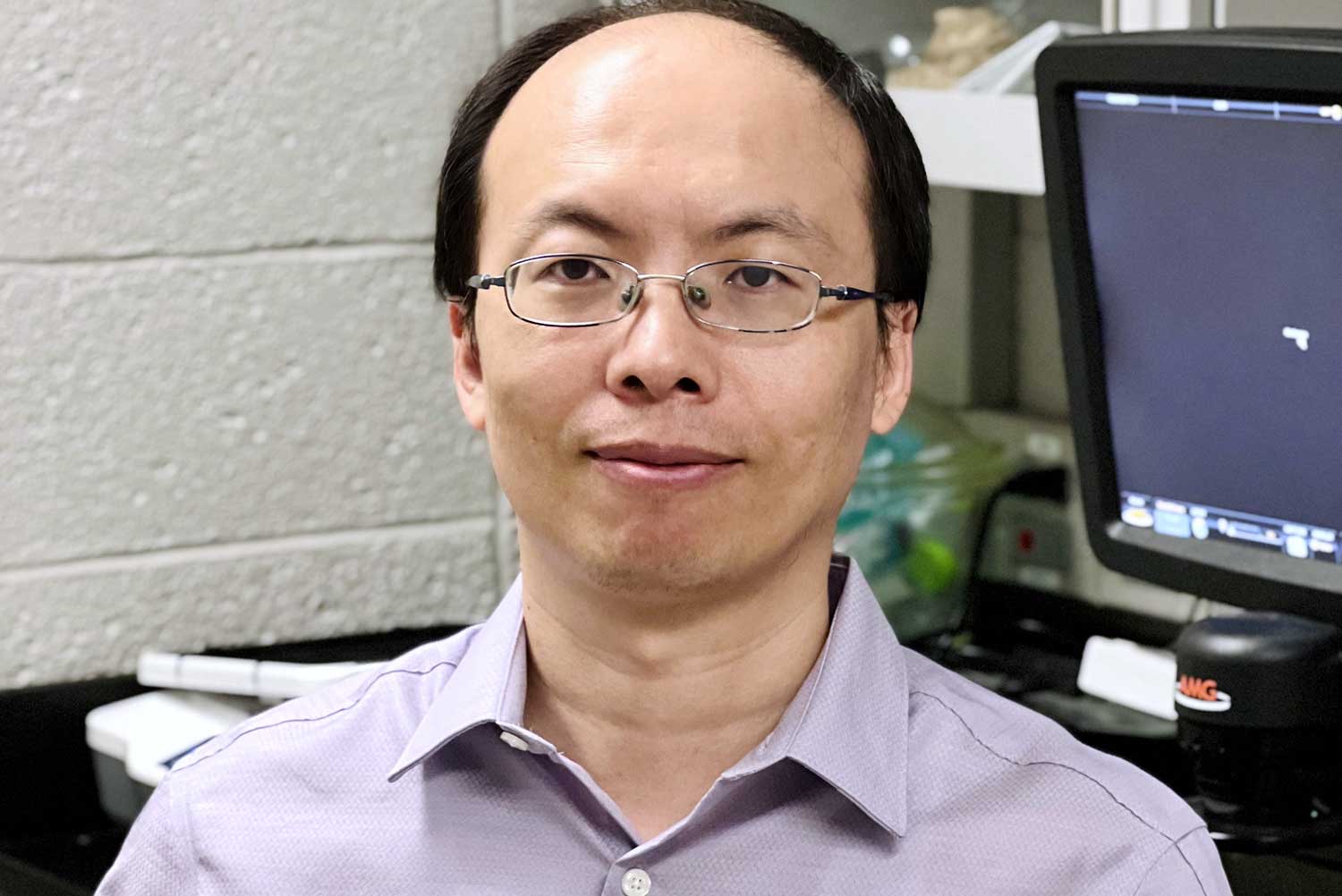Chemical engineering professor receives funding to further develop novel insulin delivery method for Type 1 diabetes

In a significant step forward for diabetes research, Zhiqiang Cao, Ph.D., professor of chemical engineering and materials science at Wayne State University, has been awarded two grants. The first, from JDRF UK, the world’s leading nonprofit for Type 1 diabetes (T1D) research, and the Steve Morgan Foundation, a United Kingdom-based charitable organization, “A Novel Glucose Responsive Insulin Injection,” totals $530,233. The second grant, from Breakthrough T1D, formerly JDRF, “Orally Delivered Glucose-Responsive Insulin,” totals $274,499.
Both grants will support Cao’s pioneering work on developing a glucose-responsive insulin (GRI) product, which aims to revolutionize daily T1D management.
T1D, which affects roughly 1.6 million Americans, requires continuous monitoring and management of blood glucose levels, a challenging process that is burdensome for patients.
“Traditional methods, including insulin pumps and regular glucose monitoring, have improved diabetes management but still fall short of providing the precise control necessary to mimic a healthy pancreas,” said Cao. “This is where our GRI research could make a significant impact.”
GRI works by automatically delivering the proper amount of insulin according to the body’s glucose levels, much like a healthy pancreas would. This innovative approach has the potential to improve therapeutic outcomes for T1D patients by reducing the need for constant self-management and alleviating the anxiety associated with potential complications.
Cao’s research builds on previous work where he developed a uniquely designed GRI.
“Preliminary data have shown promising results, including enhanced potency, stability and therapeutic performance compared to existing GRIs,” said Cao, who has amassed more than $5.8 million in diabetes research funding since arriving at Wayne State in 2013.
Current projects focus on overcoming remaining obstacles in GRI development and advancing the product toward a finalized formulation ready for human trials. If successful, this GRI injection could transform diabetes care by providing patients with improved control over their blood glucose levels and reducing the occurrence of hypoglycemic and hyperglycemic events. Ultimately, it promises to free individuals from the relentless cycle of blood glucose measurement and carbohydrate counting, improving their quality of life.
“Receiving this grant is a testament to Dr. Cao’s dedication and the cutting-edge research being conducted at Wayne State,” said Ali Abolmaali, Ph.D., dean of the College of Engineering. “We are excited to see how his innovative approach to insulin delivery will improve the lives of people with Type 1 diabetes and contribute to the broader fields of engineering and medicine.”
Ezemenari M. Obasi, Ph.D., vice president for research & innovation, echoed Abolmaali’s sentiments.
“Dr. Cao’s groundbreaking work exemplifies the innovative research being conducted in the College of Engineering, highlighting the university’s commitment to advancing health care solutions through scientific discovery,” Obasi said. “This support underscores the global importance of this research and its potential to make a lasting impact on the lives of those living with Type 1 diabetes.”